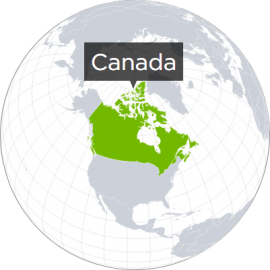Prosperity is built by deliberate choices to develop a society that works for everyone — an inclusive society, with a strong social contract that protects the fundamental liberties and security of each individual. It is driven by an open economy that harnesses the ideas and talents of the people of a nation. This in turn builds an enabling environment for all to flourish by fulfilling their unique potential and playing their part in strengthening their families, communities, and nations. A prosperous society is not just about what we’re getting, but about who we are becoming — individually and together.
The Foundational Elements of Prosperity

Politicians across the globe like to declare they are committed to building prosperity for this generation and future generations — that the choices they are making today not only serve today’s citizens but also serve those to come. But to build prosperity requires determination and grit. There are decisions that turn the rhetoric into reality, and then there are decisions that take the rhetoric and destroy prosperity.
Politicians across the globe like to declare they are committed to building prosperity for this generation and future generations — that the choices they are making today not only serve today’s citizens but also serve those to come. But to build prosperity requires determination and grit. There are decisions that turn the rhetoric into reality, and then there are decisions that take the rhetoric and destroy prosperity.
This is hard to disagree with. But if we espouse this rhetoric, it means that when we are faced with hard decisions, it is the inherent dignity of people that needs to be respected — their freedom of speech, worship, and assembly. It means that when governing institutions have the power to act, they act with integrity, are accountable to their citizens, and subject to the rule of law. It means that when tough decisions must be made, governments are respectful of the culture and the bonds of trust needed for society to flourish, work with the strength of families, and are supportive of communities. This is the foundation stone on which strong and open economies are built and empowered people stand.
We have witnessed these principles at work in our generation. Since the fall of the Berlin Wall, we have witnessed rapid prosperity improvements in nations undergoing enormous transition, ushering in a new era of freedom and opportunity.
These transformations have delivered unprecedented political accountability across Eastern Europe and beyond, restoring essential freedoms of speech and assembly. Individual liberties have been rebuilt, with nearly half of the former Soviet nations experiencing an improvement in their civil liberties. Across the world, the number of democracies has almost doubled to 99 today. The advent of effective institutional frameworks has helped limit abuses of power, with 91 countries experiencing a reduction in their levels of corruption since 1989, helping to safeguard personal freedoms and unleash economic potential.
Closed economies have opened up. Nearly one hundred countries have
strengthened their property rights and even more have improved their domestic
business freedoms. A similar number have seen international trade grow as a
share of GDP, with the reduction of tariffs globally.
This economic progress delivered significant wellbeing dividends, with global average life expectancy increasing to over 70 years, some one billion more children attending school, fewer dying in infancy, and helping to reduce the proportion of people living in extreme poverty by an astonishing 65% since 1989.
This step-change highlights the foundational elements of prosperity from which lasting economic and social wellbeing flow. With strong institutions helping economies to become more open and people to feel more empowered, the prosperity dividend that followed these changes has been as profound as it has been widespread.
However, this remarkable progress has also created a sense that the building of prosperity is inevitable. But that is not so. Prosperity can take years, if not decades, to build, but can be lost in a moment. We stand at such a moment in time.
The Prosperity Index acts as a spotlight on what builds prosperity or conversely what causes poverty. It tracks the rise and fall of prosperity over time and captures the outcomes of decisions that either build or destroy prosperity.
When we look at what is happening across the nations of the world, this year’s Legatum Prosperity Index shows that global prosperity is stagnating. However, this stagnation is not simply a result of the recent impact of the COVID-19 pandemic.
Ongoing deteriorations in four key elements are causing the erosion of the core components of prosperous societies: Executive Constraints, Political Accountability, Freedom of Assembly and Association, and Freedom of Speech and Access to Information. For example, term limits have been extended in 31 countries in the last decade or so, which undermines the accountability of leaders. For 100 countries around the world, freedom of expression and of assembly have both deteriorated over the last decade.
But it is not just in less prosperous or less stable regions where these foundations are weakening. Western nations need to take care. Across the OECD, these foundations are also all weakening — and have been doing so steadily over the last decade.
The stagnation in prosperity is being driven by leaders in countries around the world disregarding what builds the foundations of prosperity. People are forgetting to pay attention to, and care for, the foundations of prosperity, and as a result there has been a widespread erosion of the core components of free and prosperous societies.
In some regards this lack of attention is not surprising. Instead of keeping our focus on the foundation of prosperity, the international community has set its focus on the outcome factors, those that are the fruit of building well: education, health, living standards and the environment. Through the accountability of the SDGs (and the preceding MDGs) driving a focus on the outcomes of determined and gritty decision-making, we have seen a continued improvement in the outcome metrics of poverty, education, and health across many nations of the world since the beginning of the 2000s.
However, without an equivalent focus on what decisions need to be taken to build the foundations of prosperous nations, these outcomes will ultimately falter, and some countries are already stagnating without the equivalent investment and focus on these foundations.
However, at this moment in history, this essential focus is also being challenged. The clash of visions across nations is profound, as the geo-political landscape is being reshaped by the different approaches to the building of society across the nations of the world.
Questions about the nature of prosperity and how it is created are being raised by several transitions: the emergence of China and India as superpowers, the retreating of the US from the role of global leadership, and the emergence of the UK as an independent nation, with the questions that raises for the unity of the European Union.
These questions include: can capitalism and an open economy easily coexist with authoritarianism? Do free markets necessarily imply free speech? The answers to these questions can be found in the Prosperity Index.
Yes, it is possible to limit the freedom of people and build an open economy. Yes, it is possible to suppress free speech and build free markets.
But it is not possible to do these things and build true prosperity. The suppression of the freedom of people and their speech will lead to limited and stunted prosperity. Societies that unduly restrict personal liberties ultimately erode trust and social capital. Innovation and dynamism are stifled, and the State has to expend ever greater resources to engender compliance.
Creating lasting pathways to prosperity requires that we do not take these core freedoms for granted, and we squander them at our peril. They are the building blocks of a free and prosperous nation on which strong and open economies can be built that lead to increased living standards.
The Prosperity Index clearly demonstrates that it is only by preserving the foundations of prosperity — the inputs — that we can we continue the journey of extraordinary progress that we have seen in the past 30 years — the outputs — thereby ensuring that all individuals, communities, and nations are able to fulfil their unique potential.
The key lessons of the Legatum Prosperity Index are twofold. First, if you want to build the much-desired outcome of the wellbeing of a nation’s people — a nation’s prosperity — there are no short cuts: you have to invest in the foundational principles of nation-building, however prosperous a nation you are: good governance, the rule of law, strong social capital and personal freedom.
This past year, national leaders have been tested to see whether they are really committed to fighting for the prosperity of their people, or whether it is easier to follow the crowd and make decisions that lead to the unravelling of generations of careful work.
Without these key foundation stones, it is impossible to keep growing prosperity. The message is: take care of what is precious — value it, nurture it, invest in it. This will set the culture of who you become as a nation. The future belongs to those who take care and not those who squander their inheritance.
Second, avoid divisiveness and distractions. Much of the energy of western democracies is being diverted into prosperity-destroying divisionist politics and fads. It is in the interest of those who would see prosperous nations fall to drive the divisions within them, fragmenting and dividing society, and pitting group against group to undermine prosperity. Resist at all costs and choose to build unity. Effective political leadership must seek to bring people together, focusing upon the many things that unite them rather than the few things that divide.
Nations need the wisdom, knowledge, and character to focus on what builds prosperity and not turn to the left and right in a state of distraction. The ancient paths show the way to build prosperity with determined and gritty decision making to build inclusive societies, open economies, and empowered people.





